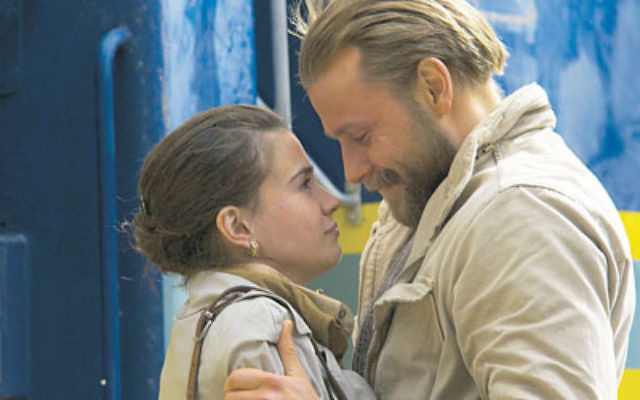Bridging the German-Jewish divide
GERMAN films about Jews and Judaism carry a heavy weight of history. The lingering impact of Nazi persecution along with the guilt of later generations and the questions of communal responsibility for Nazi atrocities continue to engage German filmmakers seven decades after the Holocaust.
The Goethe Institute’s annual Festival of German Films, which opened this week in Sydney and Melbourne, takes its pick of the best recent German films. And this year the dominant Jewish theme is how German Jews and German Christians make lifelong connections.
My German Friend is one of the highlights of the festival. Writer/director Jeanine Meerapfel’s parents were German-Jewish refugees living in Argentina when she was born in 1943. At the age of 21 she went to Germany to study film, with the result that all of her films reflect the dislocation that she and her family have felt.
The film is based on Meerapfel’s own story. A young Sulamit Lowenstein (played by Celeste Cid) becomes friends with a neighbour, Friedrich (Max Riemelt), who turns out to be the son of a former senior Nazi SS officer.
The film charts the course of their relationship over 20 years through two countries and numerous political upheavals. Produced in Spanish and German, it recently received five Argentinean film award nominations.
My German Friend has some flaws: shot on a limited budget, the young actors who play the main characters in early scenes are not strong and some of the director’s pacing is slow. The necessity to include such a long span of years burdens the film with a great deal of narrative and incident.
But something happens midway through the film. As Sulamit and Friedrich grow older, their characters’ responses to the historical events start to live, giving a deep insight into the German-Jewish South American émigré experience.
Meerapfel has written articulately about her childhood. German Jews and the former Nazis “emigrated to Argentina within a few years of each other and came from the same German cultural circles … It is an irony of history that the German Jews and the German Nazis in Argentina favoured similar places to live, had similar tastes in architecture, and chose similar places to holiday.”
The Australian-German documentary co-production German Sons tells a similar story, although without the same level of danger for its characters.
Director Philippe Mora was born in Paris in 1949 after his parents survived World War II – his father Georges served with the French Resistance and his mother Mirka escaped deportation to Auschwitz.
Mora grew up in Melbourne and began making films at an early age, with his 1973 film Swastika being one of the earliest films to examine the popularity of Hitler. After many years of successful filmmaking in Australia and the US, Mora met Harald Grosskopf, the German son of a Nazi soldier, at a Berlin film festival in 2009. They decided to make a documentary together, exploring and comparing their family histories and the legacy of the Nazi period.
The result is German Sons, a very personal account filmed in Germany and Poland that includes visits to Berlin’s major landmarks, as well as to the site of the Auschwitz concentration camp.
Also screening at this year’s festival is Cinema Jenin, a documentary about how German filmmaker Marcus Vetter helped to restore and reopen a cinema in Jenin on the West Bank that was closed during the intifada in 1987. Vetter enlisted the help of German and Palestinian volunteers, and worked closely with Israeli actor and political activist Juliano Mer-Khamis (who was assassinated in 2011).
The opening night film for the festival is director Georg Maas’ Two Lives, a thriller set in East Germany after the fall of the Berlin Wall. The cast includes acclaimed Norwegian actress Liv Ullmann.
Enquiries: www.goethe.de/ozfilmfest.
REPORT by Don Perlgut
PHOTO of Celeste Cid and Max Riemelt in My German Friend.


comments